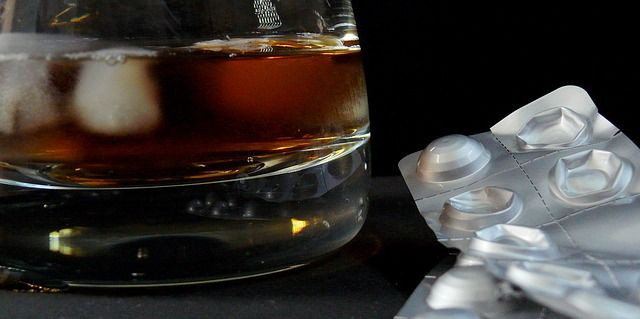Nearly A Third Of America's Medical Students Report Alcohol Abuse

If anybody understands the negative health consequences associated with drug and alcohol abuse, it’s someone training to be a doctor. And yet, after devoting thousands of hours to their studies, competing with some of the brightest minds in the country, and expecting more than $150,000 in educational debt, a lot of med students can’t wait to unwind with an alcoholic beverage. Or two. Or a few more than that. Maybe even some prescription painkillers.
Researchers from the Mayo Clinic conducted a study showing the scope of alcohol abuse and dependence among students attending medical schools. Results show that around a third of these burgeoning minds abuse alcohol to help cope with the exorbitant amount of work they are given.
"Our findings clearly show there is reason for concern," said Dr. Liselotte Dyrbye, an internist at the Mayo Clinic, in a statement. "We recommend institutions pursue a multifaceted solution to address related issues with burnout, the cost of medical education and alcohol abuse."
Dyrbye and her colleagues issued surveys to 12,500 medical students in the United States, a third of whom responded. Around 1,400 people who answered the survey experienced alcohol abuse or dependence, representing one-third of respondents. Students who reported signs of burnout, including emotional exhaustion and feelings of depersonalization, were more likely to fit the criteria for alcohol abuse or dependence. So were those who were younger than most students, unmarried, and had a large amount of student debt.
The researchers noted that the average cost for medical school increased by 209 percent between 1995 and 2014. Doctors graduating with a medical degree in 2014, on average, are stuck with $180,000 in debt.
“In our paper we recommend wellness curricula for medical schools, identifying and remediating factors within the learning environment contributing to stress, and removal of barriers to mental health services,” said first author and Mayo Medical School student Eric Jackson.
Another team of researchers from the Mayo Clinic conducted a study that revealed a similar pattern once med students make it to their residency. Unfortunately, it seems a lot of physicians overprescribe opioid painkillers both for their patients and their own personal use. Among 44,612 anesthesiologists, 384 physicians had a confirmed substance abuse disorder and 28 of the physicians died as a result of it during their training period.
Stress, anxiety, and depression are all part of the medical profession. In fact, research published in the Journal of the American Medical Association revealed that one out of every four young doctors experiences symptoms of depression. The researchers who conducted that study were surprised these numbers were still high considering reforms have been implemented to improve mental health among residents.
Researchers from the Medical University of South Carolina conducted a study back in 2010 that compared depression rates among medical school graduates and people in the general population. Not only did they find that medical interns were more likely to suffer from depression, they were also more reluctant to seek treatment for mental health.
Respondents in the medical field cited a lack of time, concerns with confidentiality, a desire to manage their own health on all fronts, and inconvenient access. So it seems healthcare professionals and the general public deal with the same barrier to getting mental health treatment: stigma.
Source: Hasan O, Shanafelt T, Satele D, Dyrbye L, Jackson E. Burnout and Alcohol Abuse/Dependence Among U.S. Medical Students. Academic Medicine . 2016.



























